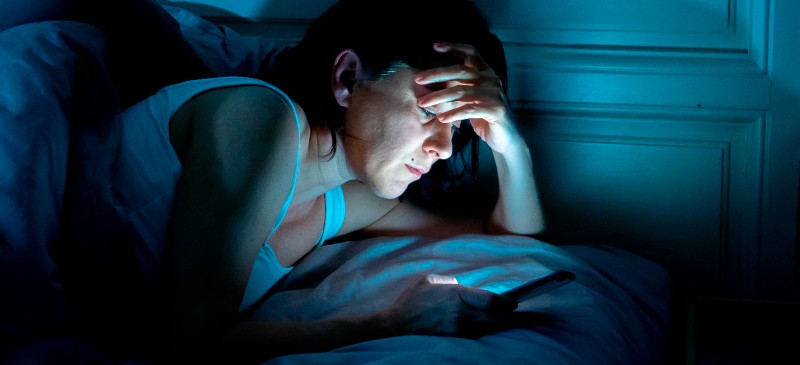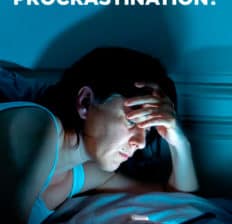This Dr. Axe content is medically reviewed or fact checked to ensure factually accurate information.
With strict editorial sourcing guidelines, we only link to academic research institutions, reputable media sites and, when research is available, medically peer-reviewed studies. Note that the numbers in parentheses (1, 2, etc.) are clickable links to these studies.
The information in our articles is NOT intended to replace a one-on-one relationship with a qualified health care professional and is not intended as medical advice.
This article is based on scientific evidence, written by experts and fact checked by our trained editorial staff. Note that the numbers in parentheses (1, 2, etc.) are clickable links to medically peer-reviewed studies.
Our team includes licensed nutritionists and dietitians, certified health education specialists, as well as certified strength and conditioning specialists, personal trainers and corrective exercise specialists. Our team aims to be not only thorough with its research, but also objective and unbiased.
The information in our articles is NOT intended to replace a one-on-one relationship with a qualified health care professional and is not intended as medical advice.
What Is Revenge Bedtime Procrastination? (Plus How to Beat It)
October 31, 2021

If you’re someone who has a busy schedule and/or a high-stress job and you struggle to fall asleep at a decent time most nights, you may be dealing with something called “revenge bedtime procrastination” (RBP).
RBP is a bit different than insomnia, in which people can’t sleep even though they are trying to, because it’s more intentional. People dealing with RBP could probably stick to healthier sleep schedules if they prioritized them more, however other desires besides sleeping are considered more important.
Is revenge sleep procrastination real? Research suggests that it’s both real in terms of its negative health impacts and also fairly common.
Unfortunately, because it’s associated with sleep deprivation, it can lead to issues like daytime fatigue, brain fog, low motivation and even weakened immune function.
What Is Revenge Bedtime Procrastination?
Sleep procrastination in general takes two main forms: either delaying the act of getting into bed (called bedtime procrastination) or putting off actually truing to sleep even once in bed (called while-in-bed procrastination).
The Sleep Foundation defines revenge bedtime procrastination as “the decision to sacrifice sleep for leisure time that is driven by a daily schedule lacking in free time.”
In other words, it occurs when people stay up late at night to do things they enjoy, such as scrolling the internet or watching TV, because they feel like they lack the freedom to do these things during the daytime.
The revenge aspect of RBP explains how someone has the desire for retribution and retaliation by doing something spiteful after they’ve been wronged. In this case, people engage in RBP because they feel like they deserve to after their day has been spent on things they didn’t enjoy doing, typically work or schoolwork.
This explains why RBP is also called “retaliatory staying up late.”
Experts consider revenge bedtime procrastination to have three main components:
- A reduction in total sleep time due to going to sleep late. Any less sleep than about seven to nine hours per night is considered sleep deprivation. A 2019 Phillips Global Sleep Survey that included adults from 12 countries found that 62% of adults worldwide feel they don’t get enough sleep, averaging 6.8 hours on weeknights.
- The absence of a valid reason for staying up late. Staying up is a choice in this situation but not due to something like working night shifts or feeling sick.
- The knowledge that a lack of sleep and a late bedtime are often the causes of consequences the next day, such as feeling tired and moody.
What is the Chinese word for revenge bedtime procrastination? Supposedly the term “revenge bedtime procrastination” is a spin-off of a Chinese expression “bàofùxìng áoyè” that describes frustration tied to long, stressful work hours that leave little time for personal enjoyment. Bàofùxìng áoyè first gained attention via social media and then was translated into other languages, including English.
Signs and Risk Factors
How do you know if you’re engaging in RBP? Ask yourself these questions:
- Do you delay going to sleep because you would rather do other things that you enjoy, such as watching TV or YouTube videos or playing video games?
- Do you stay up late to spend time with friends or family? Do you drink alcohol or eat late at night, which only further worsens your sleep?
- Do you miss out on sleep even though you know it’s important and that there are consequences to pay for feeling tired?
- Do you feel deprived of your personal life and free time to simply relax? Does your day mostly seem out of your control?
- Are you prone to procrastinating in other areas of life too? For example, do you delay getting projects done, exercising or completing chores?
What puts someone at risk for engaging in revenge bedtime procrastination?
- Being a “night owl,” also called being an evening chronotype, can make people more inclined to stay up later.
- Dealing with significant daytime stress, especially tied to work, is a big risk factor.
- Working extended work hours and/or having a long commute are other risks, since these leave little or no time for entertainment or relaxation.
- Is sleep procrastination a symptom of ADHD? It’s more associated with procrastination in general, including in other aspects of life like work, school, self-care and family obligations.
- Students and women seem more susceptible to sleep procrastination due to stress associated with their workload plus family lives.
Effects on Health
A lack of sleep is tied to many different physical and mental health problems. When revenge bedtime procrastination leads to too little sleep, it can cause negative effects on your well-being, such as:
- Fatigue, drowsiness and lethargy during the day
- Irritability
- Reduced motivation and productivity — and even depression symptoms in some cases
- Heightened risk of drowsy driving and accidents
- Worsened anxiety symptoms, often tied to feeling like you’re “falling behind”
- Reduced self-regulation and impulse control
- Impaired physical health, including being more susceptible to cardiovascular problems, metabolic disorders, weight gain, obesity, and even some infections and viruses
How to Get Better Sleep
How do you beat revenge on bedtime procrastination? Below are tips for getting better rest, including how to utilize natural sleep aids, such as relaxation exercises:
1. Focus on the Positives of Getting Enough Sleep
RBP is really a decision to delay sleep in response to chronic stress or a lack of free time. This means that to end it you need to make the decision to prioritize sleep instead.
One way to do this is to become more aware of the benefits of sleeping well and having more energy during the day. Pay attention to your mood, energy and productivity when you’re well-rested.
Journaling about how you’re feeling and practicing mindfulness and meditation can help you do this since they increase self-awareness.
2. Create a Sleep Schedule and Stick to It
The importance of practicing good “sleep hygiene” can’t be overstated. This involves both establishing good sleep habits and setting up an environment conducive to getting quality sleep.
RBP is thought to be associated with a lack of self-regulation and self-control, so the best thing to do is create sleep habits that feel automatic and don’t require lots of effort. Self-control is usually at its lowest at the end of the day, so having a regular sleep routine and schedule that you try to follow as often as possible can save you from missing sleep.
Here are some suggestions for doing this:
- Create a consistent bedtime and wake-up time, including on weekends and non-working days. Make a big effort to stick with these times for at least one to two months to make them more natural and automatic-feeling.
- Avoid stimulants, alcohol or caffeine in the evening that can keep you up.
- Don’t use electronic devices, like your phone, TV, laptop or tablet, within one to two hours before going to bed. These emit blue light, which signals your brain to stay alert, making it harder to feel drowsy.
- To help you relax and wind down at night, do things like reading, journaling, meditating, yoga, taking a walk, showering, breathing exercises, etc. These natural relaxation techniques can help you feel calm and more ready for sleep.
- Keep your bedroom very dark and quiet, and lower the temperature to the mid-60s Fahrenheit.
- Make sure you have a comfortable mattress, pillows, etc., which will make dozing off easier.
3. Find Ways to Handle Stress Better and Relax More During the Day
Some experts believe that RBP is really rooted in “an attempt to find recovery time in response to stress.” This means that finding ways to make your day feel less stressful and burdensome is one of the most effective strategies for handling RBP.
If you lack work-life balance and typically work extended working hours that cut into normal leisure time, consider talking to your supervisor/boss about potential changes that can be made. Perhaps you can work from home one to two days per week, shorten the amount of time that you need to be online and available, or delegate some of your responsibilities. These can help you draw boundaries between work and home.
While this isn’t always possible, anything you can do make your day feel calmer and more enjoyable, even if it means sneaking in exercise or walk during your break, can help you generally keep stress under control.
Conclusion
- Revenge bedtime procrastination refers to the decision to fall asleep late in the night in response to a lack of free time earlier in the day.
- People who are most likely to deal with this issue include those who work long hours, women juggling families/careers, students, “night owls” and people who struggle with procrastination in other areas of life.
- Because it can lead to insufficient sleep (less than seven to nine hours per night), negative health effects can include fatigue, low productivity, depression and anxiety symptoms, weight gain, metabolic issues, and more.
- The best way to beat this problem is to establish a healthy “sleep hygiene” routine, focus on the positives of feeling rested and aim for more work-life balance.




